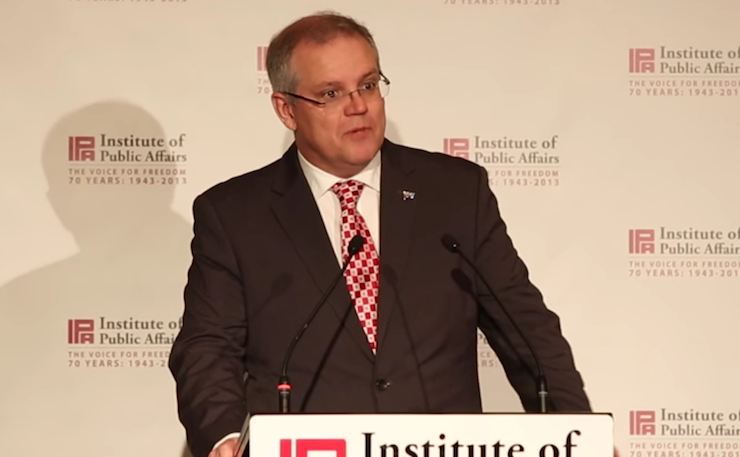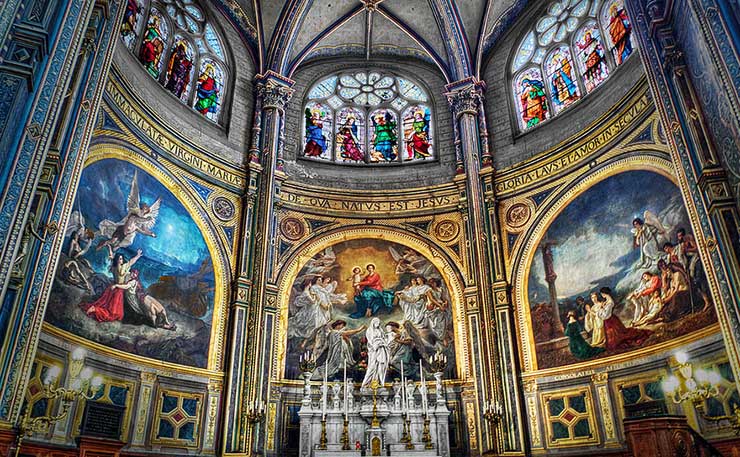There’s never been a better time to be a billionaire, writes Brian Morris.
With all the viciousness of a budgetary wet lettuce thwacking across sun-tanned wrists, Treasurer Scott Morrison has dealt a flaccid blow to billionaires and banks as fallout from the Panama Papers starts to bite.
As offshore tax havens flourish our former Goldman Sachs banker turned Prime Minister has turned up in the papers himself, and threatened tax avoiders with… well, nothing. No closing of any tax loopholes as multinationals remain largely unfettered.
Indeed, the government’s budget provides even greater incentives for clinging to wealth. Cuts to company tax will cost the nation $47 billion over 10 years; negative gearing $8 billion; no death duties for the mega-rich costs $10b; and tax-free religious corporations (not charities) costs us more than $20b every year.
This is not the “politics of envy” – taxing the avoiders is the “politics of reason”.
And with each revenue initiative that Turnbull swept from the budgetary table we lament Australia’s growing deficit – not simply the greedy unwilling to pay their way, but ordinary working people carrying the burden while public schools, hospitals and national infrastructure remain grossly under-funded.
It’s uncanny, too, that with each case of corporate tax-dodging and new financial scandal there’s invariably a grubby link between entrepreneurial greed, weak politicians, and acquiescent religions.
Inescapably, politics and religion have been joined at the hip since 380 CE, when Roman Emperor Theodosius declared Christianity to be the Church of Rome. That symbiotic relationship remains today.
The Panama Papers exposé has yet to fully play out, with 800 wealthy Australians being investigated by the Australian Taxation Office for their alleged activities with offshore tax havens. Internationally, this is just one snowflake on the tip of a very large iceberg. Avarice by the mega-wealthy breaks new global records as the wealth gap becomes a chasm.
Secular charity Oxfam says in 2016 the world’s richest one per cent will own more than the combined wealth of the other eight billion people on this planet. They slam the World Bank for complicity in using tax havens.
Here in Australia a defiant Turnbull government backs the banks and rules out a Royal Commission to investigate how they short-change their customers and tamper with interbank lending. There’s no stomach either for a full-blown federal anti-corruption commission.
Meanwhile, the nation’s churches stay schtum, skulking silently in the shadows, petrified that this latest financial furore might draw attention to themselves.
We should not forget that religion, too, has vast fortunes squirrelled away in addition to immeasurable land and property holdings, with only a small fraction in plain sight (including their countless churches). Recall, also, the Vatican Bank scandals, now with the upstanding Cardinal George Pell at the financial helm.
And why have we missed the billions that religions ravenously reap from the public purse by way of grants, gifts and the full gamut of tax-breaks. But an April poll shows 64 per cent oppose churches being tax-exempt.
It’s not only basic charities that benefit from the historical rort of “advancing religion”. Religious companies pay no tax on hundreds of their private hospitals, aged care facilities, private schools and other ventures.
But for religious schools they now claim they are “advancing education“, while still proselytising on a daily basis. In 2011 (latest figures) tax-payers gifted church schools $7.7 billion for “Christian education.” Public disgust and anger mounts as each new banking and financial scandal erupts, all of which contrive to deprive public coffers of essential revenue to fight inequality, unemployment and disadvantage.
Hospitals, public schools, and low-cost housing are all under-resourced; and national infrastructure would boost the economy and business development, better roads, fast-rail, the full NBN, and green energy!
Money has always been the great ‘lubricant’, oiling the wheels of big business or greasing palms of the corrupt. But the sheer magnitude of global wealth being hidden and laundered, and the insatiable greed of the mega-rich, beggars belief.
Historically, greed has been a vice, one of the Seven Deadly Sins. And today’s brazen wealth now faces a groundswell of community wrath. It has nothing to do with the ridiculous and pejorative Liberal jibe – “this is all about the politics of envy“. The brutal truth is simply that these off-shore havens allow the super-wealthy to pay no tax.
Mossack Fonseca is just one of many firms worldwide who are complicit in hiding vast global fortunes. The massive shortfall in federal revenue is then borne by honest tax-paying workers. As for the pusillanimous politicians, they have become a weak and self-serving coterie who perpetuate an illusion that capital must be free to generate wealth that “trickles down” to the lower levels of society.

In Australia it is both Labor and Liberal who are a bulwark that protects a privileged corporate elite from contributing their fair share of tax to sustain an equitable society.
If parliamentarians, state and federal, don’t have off-shore tax havens themselves they certainly have the tax-limiting advantages of family trusts, negative gearing, and a vast array of minimisation schemes. And the alleged voice of the oppressed, the churches, continue to remain mute, save for their periodic pronouncement on poverty in a time of prosperity. They fear their hypocrisy will expose the magnitude of their own wealth; and annual tax-exemptions reliably estimated at over $20 billion per year.
What is even more remarkable is that it was Protestantism and Calvinism in particular, that lifted the long-standing Christian embargo on “avarice and usury”. Through the 18th century this fundamentalist brand of Christianity allowed the mythical story of Jesus and the temple money-lenders to be usurped by global banking and the captains of industry. Capitalism has now mushroomed into a level of corporate and personal greed unprecedented in world history.
In 1905 Max Weber wrote The Protestant Ethic and the Spirit of Capitalism which allowed the public to more broadly question this transition in Christianity, at a time when such commentary was still dangerous. But it was Richard H. Tawney, in 1926, and his deeply probing Religion and the Rise of Capitalism that tied the harsh and rapacious manifestations of the industrial revolution to Calvinism. He exposed a brand of strident Christianity that bore little resemblance to the ethics of their supposed founder from Nazareth.
These early works (and many others) point unerringly to the fact that Protestantism and Calvinism lead to the “unplanned and uncoordinated emergence of modern capitalism.” Offshore tax havens, the mega-rich, and a wealth gap that has disenfranchised 90 per cent of the planet’s population has been the disastrous result.
Whatever their best intensions, the net effect has brought us to the globalisation of leading monopolies in all key industries where the annual turnover of the biggest corporations now exceeds the GDP of every nation on Earth, bar a handful of the richest. They financially out-muscle 95 per cent of all countries.
National governments, and far less the United Nations, effectively lack the power to regulate these corporate megaliths. Nor do our local politicians have the will to rectify the gross social inequities created by the excesses of laissez-faire capitalism – with a little help from John Calvin.
Donate To New Matilda
New Matilda is a small, independent media outlet. We survive through reader contributions, and never losing a lawsuit. If you got something from this article, giving something back helps us to continue speaking truth to power. Every little bit counts.





